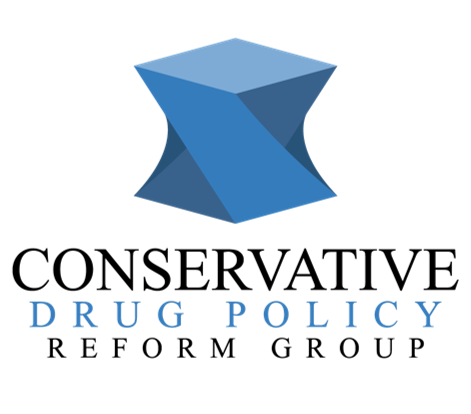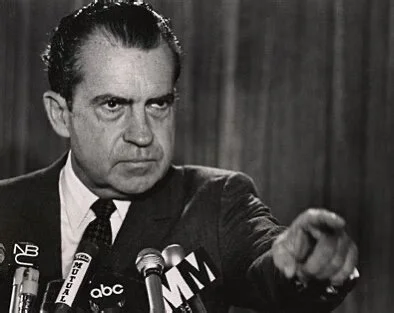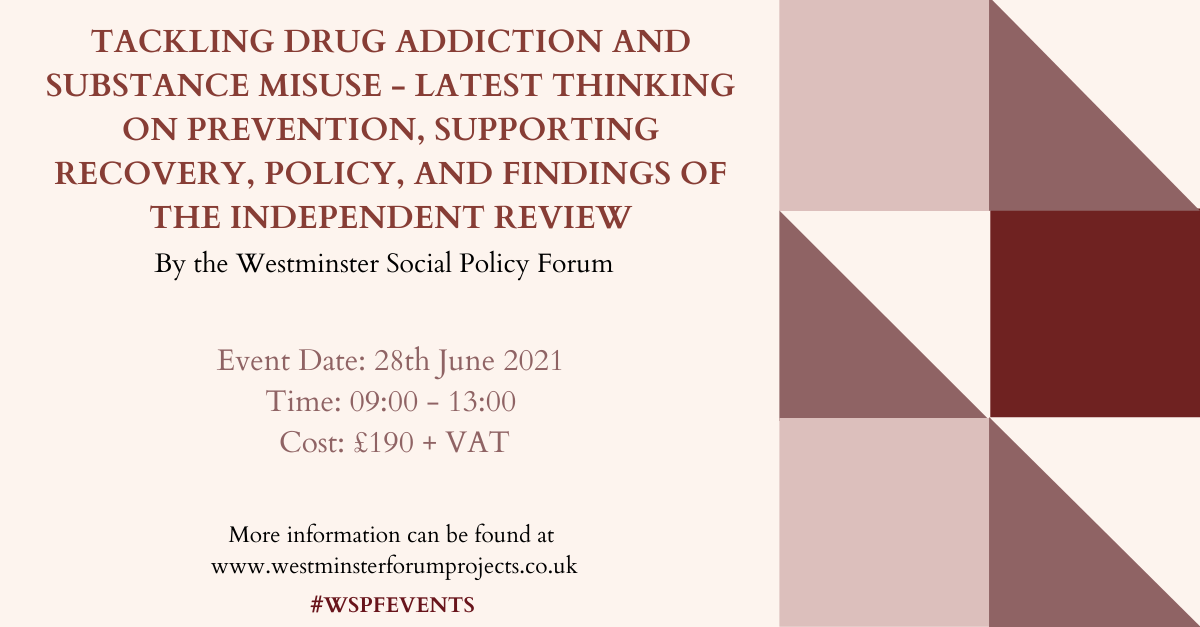“How did we let Richard Nixon declare a war on drugs, ruin so much of our society, throw away so many of our liberties, incarcerate so many innocent people, deny ourselves in the case of marijuana so many medical remedies?”
(Celebrated political critic Christopher Hitchens, in 1996)
It is 50 years today since the UK’s Misuse of Drugs Act 1971 passed into law. This was also the year in which Richard Nixon declared ‘War on Drugs,’ a battle cry which has been taken up by governments around the world, with catastrophic consequences for the safety, health and wellbeing of every population living under a criminal justice; as opposed to a health-centric; approach to drug control.
Recognition of the catastrophic failings of current UK drug policy is building
The Transform Drug Policy Foundation, supported by DrugScience, Release, LEAP UK, Anyone’s Child, The Kaleidoscope Project, Blak Sox, CREW and the APPG for Drug Policy Reform are spearheading a campaign, #50YearsofFailure, drawing attention to the “billions of pounds wasted, thousands of lives lost and countless people needlessly criminalised” under current drug policies in the UK—all trends which have worsened steadily since its implementation.
Yesterday, together with the Drugs, Alcohol and Justice Cross-Party Group, Transform collaborated with the All-Party Parliamentary Group for Drug Policy Reform—which is co-chaired by unremunerated CDPRG Chairman Crispin Blunt and Jeff Smith MP of the Labour Campaign for Drug Policy Reform—to host an event to mark the anniversary of the passage of MDA71 into law, to attention to the dire need for a review of its effects, so that evidence-based policy refinements can be made with urgency.
Decrying the increasingly negative consequences of taking an approach to drug control which focusses on law-enforcement as opposed to public health, many of the comments made by sociopolitical critic Cristopher Hitchens in 1996 could have been made today. Commenting on a front page story in LA Times on Arizona's Proposition 200—concerning the de-facto legalisation of a series of illicit drugs, Hitchens says:
“I'm very hearted to find that despite all the incessant, ridiculous, hateful, incessantly ridiculous propaganda about 'The War on Drugs' that when American voters are asked about it it shows this propaganda has had no effect. It really cheers me up to think that, it restores ones faith in the thinking voter.
“I think decriminalisation of drugs is long, long overdue, it will be looked back on when it is done as 'what was all that about? How did we let Richard Nixon declare a war on drugs, ruin so much of our society, throw away so many of our liberties, incarcerate so many innocent people, deny ourselves in the case of marijuana so many medical remedies? How did we ever let this prohibition go on as far as it has gone? I would add to what David Frum says, not just that there would be a great decline in the murder rate - because I'm not threatened physically at all if someone in my building or on my block wants to put a substance into their system and their consciousness which is their right and none of the Governments business - that doesn't threaten me at all, What does threaten me is the people who will shoot at each other for the right to sell him that stuff if it's illegal.
“The second thing that is of course a terrible consequence that arises from that is tremendous corruption. Whole police departments have been lost to the drug trade and I think it won't be long before there'll be judges too. It'll be much much worse than Chicago in the 20s it already is pretty bad. I think that's the moment decriminalisation will be considered forcibly by the authorities, they'll have to do something about it. But I think it's appalling they should have to wait that long."
Cristopher Hitchens and David Frum forecast a better way forward for global drug policy in 1996. Some of their predictions are coming true!
The Washington Post coverage indicated that Proposition 200—which among other health-centric approaches to drug control allows doctors to prescribe or recommend Schedule I drugs for certain debilitating or terminal illnesses and requires probation and appropriate treatment rather than jail for nonviolent personal drug users—could be a model for drug decriminalisation in the US, having won the support of 2/3 Arizonans and a similar number of Californians.
Are population groups around the world TODAY waking up to the need for evidence-based drug policy reform?
While, especially in the UK, we have a long way to go to redress the drug-related issues which continue to worsen under our current policies, Hitchens would likely have been heartened by subsequent improvements in approaches to drug control around the world.
Portugal, which decriminalised personal drug possession in 2000, continues to reap the benefits—with just 63 overdose deaths in 2019 compared to the UK’s 2,685—the highest number since the Office of National Statistics began record-keeping.
Over 35 US states have sanctioned the use of medical and/or recreational cannabis, with Denver, Oregon and Washington DC introducing wider forms of decriminalisation—the latter two with the support of the Plant Medicine Coalition and Decriminalize Nature movements and whose efforts will help make psychedelic-assisted psychotherapy a treatment reality for their citizens.
Psilocybin access rights were achieved in Canada in 2020 for patients experiencing end-of-life distress by the non-profit coalition of medical professionals, patients and advocates Therapsil in 2020. The CDPRG hugely appreciate our ongoing conversations with all of these groups, who together have proven severally in their different jurisdictions that it is possible to make the kinds of legislative changes that remove the barriers to healing currently faced by millions in need of treatments that work in the UK.
But these outcomes sit jarringly at odds with the celebratory media coverage that usually follow a significant drug seizure, reinforcing the fallacy that law enforcement is the only necessary approach to drug control, and that in its current enactment it is effective.
Parliamentary Questions from Crispin Blunt addressing current gaps in Governmental understanding of drug-related issues
Crispin Blunt has been submitting Parliamentary Questions to identify where there are gaps in Parliamentary knowledge on drug related issues, on the direction of the CDPRG’s research team. The observations made by Hitchens and Frum in this 1996 interview that drug-related violence increases when the illicit drug-markets are destabilised—an inevitable consequence of current modes of drug law enforcement—remain relevant today. See this excellent discussion by UK Leap Chairman Neil Woods, “Why major drug busts don’t work: an undercover cop explains.”
The ways in which major drug busts lead to deaths within the general population by heightening the dangers of the remaining landscape—typically increasing violence and reducing the purity and safety of available substances without reducing demand—are increasingly well understood by researchers.
In the interest of public health, in relation to Operation VENETIC (2020), Crispin Blunt submitted a Written Parliamentary Question on 22 May 2021 to find out about evaluations that been done to measure its effects on the UK’s drug market and the consequences for people who use drugs, specifically querying the impact on the availability, price, and purity of drugs. He was told:
“The Home Office has not made an assessment of the effects of Operation VENETIC on the illegal drugs market.”
(House of Commons, Daily Report, 26 May 2021)
(The Question, and Answer from Kit Malthouse, can be read in full in the House of Commons Daily Report.)
Though there have been multiple other lines of follow-up enquiry, supervised by the National Crime Agency—analysis of hacked devices revealing instances of the systemic police corruption anticipated by Hitchens in 1996—none have been conducted to gain insights into how Operation VENETIC has affected the wellbeing of people who use drugs in the UK.
Drug control strategies devised without consideration of public health outcomes will not result in their improvement
In her assessment of the anticipated impacts of Operation VENETIC in July 2020, Senior Researcher Amber Moore asserts that establishing its effects on UK drug markets and the people who use drug in the UK is key to calibrating whether it was a success:
“If Operation Venetic does not lead to a change in drug use and supply for the greater good, especially during a time of unprecedented lockdown, limitations on international travel, and dramatic increases in stop and search due to Coronavirus, we must begin to implement evidence-based drug policies and no longer ignore the failures of prohibition.”
It tallies with the currently lack of interest in discerning public health outcomes of UK drug policies that the Governmental expenditure on drug law enforcement dwarfs that which is allocated to safeguarding our citizens.
“Treatment services have been curtailed by local government funding cuts. The total cost to society of illegal drugs is around £20 billion per year, but only £600 million is spent on treatment and prevention. So the amount of un-met need is growing, some treatment services are disappearing, and the treatment workforce is declining in number and quality.”
This finding comes from the Independent Review of Drugs by Professor Dame Carol Black (of which Part 1 was published in February 2020), an enquiry commissioned by the Government, which reveals the catastrophic impact to society as a whole that results from the neglect of people who use drugs that forms a mainstay of the current approach. This initial report recommends that significantly greater expenditure be allocated to improving drug treatment services. Black concludes:
“Ultimately, we need to transform our approach to treatment, investing in it but also innovating so that treatment services are able to respond to today’s drugs market and future developments.”
CDPRG Chairman Crispin Blunt and Policy Council member Dr. Daniel Poulter MP will be chairing this discussion following the release of the hotly anticipated follow-up to Professor Dame Carol Black’s initial 2020 evaluation on 28 June 2021. Tickets and more information from our friends at the Westminster Social Policy Forum.
If drug legislation is neither enacted nor evaluated with reference to an end-goal of improving public health, there can be no logical expectation of improved policy outcomes in relation to areas such as drug use, safety and drug-related deaths; of which the UK has the highest levels in Europe. Drug legislation which is identified as having negligible or negative outcomes for public health should be modernised on the basis of the best available evidence.
On the 50th anniversary of the Misuse of Drugs Act 1971, it could not be more appropriate to acknowledge the shortcomings in our drug policy outcomes—as well as the vulnerable population groups that are denied basic human rights and brighter futures when resources are mis-focussed—and to commit to pursuing solutions that afford the British public the safety, healthcare and treatment access rights they deserve.
Words: Rosalind Stone


